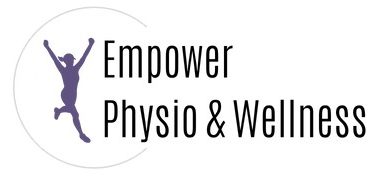Note: I am not a registered dietitian and am not here to provide specific nutrition advice. The purpose of this blog post is to share general information. Talk to your physician or dietician for more information about what is best for you.
Weight loss is one of the biggest industries in the United States. Whether it be pounds that have crept on over the years, losing baby weight, or making a lifestyle change, losing weight is a very hot topic of conversation. There are so many diets and eating plans out there and unfortunately, many focus on restricting calories. Here’s why eating too little can be problematic and why it may be a good idea to consider eating more high-quality foods instead.
Counting calories isn’t sustainable & can lead to a negative relationship with food
The first problem when it comes to weight loss is that people immediately turn to counting calories and restricting what they eat. This is not sustainable and can be associated with negative beliefs and thought patterns. The other problem is that it is easy to restrict too much.
Eating too little for a prolonged amount of time can actually have the opposite effect– it can prevent you from losing weight. It seems counter-intuitive, I know, but think back to the time of the hunter-gatherers. Our bodies are wired to prevent us from starving, and way back when, we didn’t always know when our next meal would come. Not eating enough food makes your body think a famine is imminent, so it holds on to every ounce of energy you consume. It sure as heck isn’t going to burn any extra energy.
Eating too little can lead to injury
It can also manifest as physical problems like muscle and joint pain, strains and sprains, and fractures. This is simply because your body does not have the energy and building blocks it needs to grow fit and strong. If your body thinks it is starving, it sees no point in building muscle, bone, or physical fitness. Our bodies need enough energy! You may actually need to eat more in order to boost metabolism, build muscle, improve bone health, and lose weight.
Worst-case scenario: RED-S
When taken to the extreme, restricting energy consumption for a prolonged amount of time can lead to Relative Energy Deficiency in Sport, or RED-S, formerly known as the female-athlete triad. This is most common in women and is characterized by limited calorie intake, excessive energy expenditure, and losing the menstrual period.
I want to share that I had this in high school while playing field hockey. We practiced for so many hours per week and I wasn’t eating enough to fuel my body. I worked with a registered dietician and she helped me get my eating back on track so I was properly fueled. And I felt so much better after that!
If you or a loved one have been struggling with low energy, resistance to weight loss, recurrent injuries, or fractures, please go see your primary care physician and/or registered dietician. Specific nutritional and calorie needs are highly individual and depend on your medical history and lifestyle.
An alternative approach
Rather than restriction, my personal philosophy is to eat foods as close to their natural state as possible, (aka minimally processed and high quality), eat a variety of foods, and eat enough. Remember, it’s important to eat fruits, veggies, fiber, protein, and healthy fats. As I’ve mentioned in previous blog posts, getting enough protein is vital.
If those nutrients aren’t in our diets in adequate amounts, it makes it hard for certain body processes to happen effectively. Restricting any of these food groups can leave you feeling like you have no energy and also negatively impacts bone and muscle health, mental health, and immune and nervous system functioning.
I hope this gives you a new perspective on how to live a balanced lifestyle and feel your best! Remember, do what works for you and talk to your physician or dietician. My goal is simply to share that being healthy doesn’t always have to be about restriction. Want help reaching your goals? Let’s chat.



